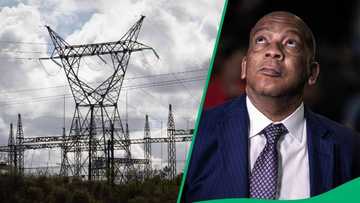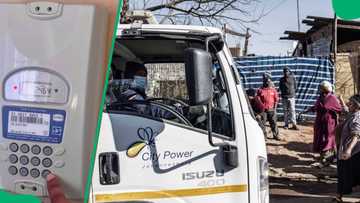Electricity Crisis: Ramokgopa Blames Municipalities For Load Reduction
- South Africa faces a new energy crisis called load reduction due to municipal underinvestment in electricity infrastructure
- Despite Eskom meeting demand, municipalities are implementing power outages to prevent overloading in high-density areas, causing significant inconvenience.
- Ramokgopa emphasised this issue reflects municipal actions, not Eskom’s performance and urged urgent infrastructure investment
Reitumetse Makwea, a Briefly News current affairs journalist in Pretoria, South Africa, has covered local elections, policy changes, the State of the Nation Address and political news at The Citizen and Rekord Noweto for over five years.

Source: Twitter
South Africa is grappling with a new energy crisis while turning a new leaf on the old one.
Electricity Minister Kgosientsho Ramokgopa has revealed that South Africa is grappling with a new crisis known as load reduction.
He said the crisis stems from municipalities' underinvestment in electricity infrastructure.
See the video posted by Newzroom Afrika on X below:
Many municipalities face the same issue
According to Ramokgopa, this issue has surfaced as various municipalities implement power outages to prevent overloading in high-density areas.
During a media briefing in Pretoria, Minister Ramokgopa explained that while Eskom has excelled in ensuring the entity can meet demand, the distribution side of the equation was faltering.
But only because of the inadequate maintenance of modernisation efforts at the municipal level.
"Eskom’s generation side has done exceptionally well in ensuring that the entity can meet demand. But we have seen that little to no investment has been made in replenishing this infrastructure's maintenance, upkeep, protection, and modernization.
"As a result of that, municipalities are under severe strain and they initiate what they call load reduction."
Load reduction involves planned outages in specific areas to avoid overloading the electrical grid, which can cause widespread blackouts.

Read also
SA critical as Electricity Minister Kgosientsho Ramokgopa marks 100 days of no load shedding: "Lies"
While necessary to protect the infrastructure, this approach has been causing significant inconvenience to residents and businesses in affected regions.
Load reduction does not reflect on Eskom's progress
Ramkgopa emphasised that this crisis is not a reflection of Eskom's performance but rather a consequence of downstream actions by municipalities.
"That has nothing to do with the performance of Eskom. It has everything to do with downstream action on the part of municipalities. That’s the crisis that is confronting us."
The Minister's comments highlight the urgent need for municipalities to invest in their electricity infrastructure to ensure a stable and reliable power supply.
Without such investments, the country could face continued load reduction challenges and associated impacts.
“We can’t praise a fish for swimming”: SA government celebrates 100 days without loadshedding
Briefly News reported that the South African government announced 100 consecutive days without loadshedding, marking a significant achievement against energy shortages.
However, netizens on X responded with scepticism and sarcasm, questioning the sustainability and cost of this stability.
Eskom attributed the success to improvements in its coal generation fleet, noting this as the longest suspension since mid-2021.
PAY ATTENTION: Follow Briefly News on Twitter and never miss the hottest topics! Find us at @brieflyza!
Source: Briefly News



